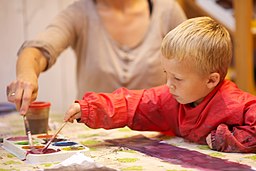I think I should answer this question by speaking about why I create blog messages.
I've used different types of blogs over the years. The ones which are the most successful for me are those that are easily accessible and where I can remember the password! If I don't remember the password, at least there should be a way of getting it quickly. I tend to think better onto paper, using pen and paper and (according to my old school friend) this puts me into a certain age group!
Having said that, what I'm doing this occasion is using DragonDictate. This is the first time that I've used DragonDictate to create blog messages. But if I close my eyes, hopefully the text isn't going to make too many mistakes. I've recently found that this software is better in recognising my voice than it used to be.
I found that I need to close my eyes when I'm speaking, so that I'm not distracted by the recognised text and all the text that starts to flow. Have you ever been in the situation where you've had an online conversation with somebody and you can hear your own voice on the system a fraction of a second after you have spoken? Well I think that it's very much like that. So closing my eyes helps with the flow of my thoughts.

So I would suggest the first way that I recognise is the way that I can capture my thoughts quickly. so, in 2012, when I went over to Canada I had a little notebook that I wrote diary entries in and I felt again that things are better when I use a diary entry in writing. Then I had a little notebook with all these diary entries. Unfortunately my typing skills are such that I would not enjoy transcribing the information. Neither would I want just to take photographs of my diary entries because that's not very accessible. So I found Audioboo which was wonderful; it's like a voice version of Twitter. It's not taken off so much as Twitter, and I would suggest that because of its ease of usage as well as the fact that people probably don't like listening to their recorded voices. So why aren't I using audio at this moment? One of the reasons is that I can adjust the paragraphs around having spoken into DragonDictate and is working with the text. Editing recorded speech is not the easiest thing to do. And I'm not typing at the moment very much because I want to give my shoulder a rest having damaged it recently.
So… Going back to why I have created blogs in the past: where there has been a fixed amount of time in which to produce blogs for example enforced being in a certain location or as part of a course. In addition, I've used Twitter best during a conference, especially when I had been able to text for tweeting. However repeated texting by me who was not used to texting caused injury!
I have also found that I've been successful when I've focused on the certain areas for my blogs. I don't intend my blogs to be read by hundreds of thousands of people, but there are very useful place to put things like my thoughts and also I've used them for responses to questions that I been asked, with the thought that I might be asked that question again and can refer people to that blog posting.
I've also used a blog posting for putting resources for workshops or demonstrations that I have presented University-wide.
So, in conclusion, I would suggest the following:
How do you capture your thoughts the best? Dictate? Type? Pencil or pen?
Have you got an overall arching topic that you want to use for your blog posts? It helps if you do otherwise there's no aim!
And finally what's your own voice? If it's a blog it can be personal, so… it's your own voice! How do you speak? How do you explain something over a telephone to somebody in a telephone conversation? Your blogs can be as formal or as informal as you wish!
It's up to you…
(And this is informal. I just thought of this out of my own head! So there aren't any references.)







